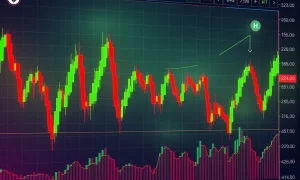European regulators have issued a stark warning that could reshape how investors approach blockchain-based equities. The European Securities and Markets Authority (ESMA) reveals that tokenized stocks typically fail to provide the same ownership rights as traditional shares. This development poses significant risks for investors seeking exposure to conventional markets through digital platforms.
Understanding Tokenized Stocks and Ownership Gaps
Tokenized stocks represent synthetic claims on underlying equities rather than direct ownership. These digital instruments track stock prices but often exclude critical shareholder rights. Investors consequently miss voting privileges and dividend entitlements. The blockchain representation creates confusion about actual ownership structures. Regulatory bodies emphasize this distinction matters profoundly for investor protection.
EU Regulators Sound Alarm on Investor Risks
ESMA Executive Director Natasha Cazenave recently highlighted concerns at a Dubrovnik conference. She stated tokenized stocks may lead to widespread investor misunderstanding. The warning specifically addresses synthetic structures versus direct ownership models. European regulators stress that technological innovation must not compromise fundamental protections. They acknowledge tokenization benefits but prioritize safeguarding investor interests above all.
Key Regulatory Concerns About Tokenized Stocks
• Synthetic claims versus direct ownership rights
• Missing shareholder protections in current structures
• Investor confusion about what they actually own
• Liquidity limitations in private placement models
• Regulatory gaps in rapidly evolving markets
Market Expansion Amid Regulatory Scrutiny
Major platforms continue entering the tokenized stocks space despite regulatory concerns. Robinhood Markets recently expanded its EU tokenized stock offerings. Kraken and Coinbase also explore similar products in select jurisdictions. This growth occurs alongside increasing regulatory examination of investor protection measures. The tension between innovation and regulation defines current market developments.
EU’s Blockchain Pilot and Future Regulation
The European Union demonstrates proactive engagement with blockchain technology. Initiatives began exploring asset tokenization as early as 2019. The EU blockchain pilot program allows testing under regulatory exemptions. Insights from this program will shape future rules for tokenized assets. The Markets in Crypto-Assets (MiCA) Regulation provides additional framework guidance.
Benefits and Limitations of Tokenization
Tokenization offers several advantages that regulators acknowledge. These include 24/7 market access and fractional ownership opportunities. Reduced issuance costs and faster secondary trading also provide benefits. However, most tokenization efforts remain limited in scale and liquidity. Instruments typically issue through private placements and hold to maturity.
Investor Protection Must Remain Paramount
Regulators maintain that technological advancement requires robust legal frameworks. The World Federation of Exchanges echoes concerns about safeguard deficiencies. Current structures often misalign with traditional equity protections. Clear communication and appropriate safeguards become essential components. Investors deserve understanding before engaging with tokenized products.
Frequently Asked Questions
What are tokenized stocks?
Tokenized stocks are digital representations of traditional equities on blockchain platforms that track underlying stock prices but may not provide full ownership rights.
Do tokenized stocks give voting rights?
Typically no. Most tokenized stock structures provide synthetic exposure to price movements without conferring voting privileges or other shareholder rights.
Why are regulators concerned about tokenized stocks?
Regulators worry investors may misunderstand what they’re purchasing, believing they own actual shares when they actually hold synthetic claims without traditional protections.
Which companies offer tokenized stocks?
Robinhood, Kraken, and Coinbase are among platforms exploring or offering tokenized stock products in various jurisdictions, primarily through special purpose vehicles.
Are tokenized stocks illegal?
No, but they operate in regulatory gray areas. The EU has established pilot programs to test tokenization while developing appropriate regulatory frameworks.
How can investors protect themselves?
Investors should thoroughly research product structures, understand what rights they’re acquiring, and recognize the differences between synthetic and direct ownership models.








